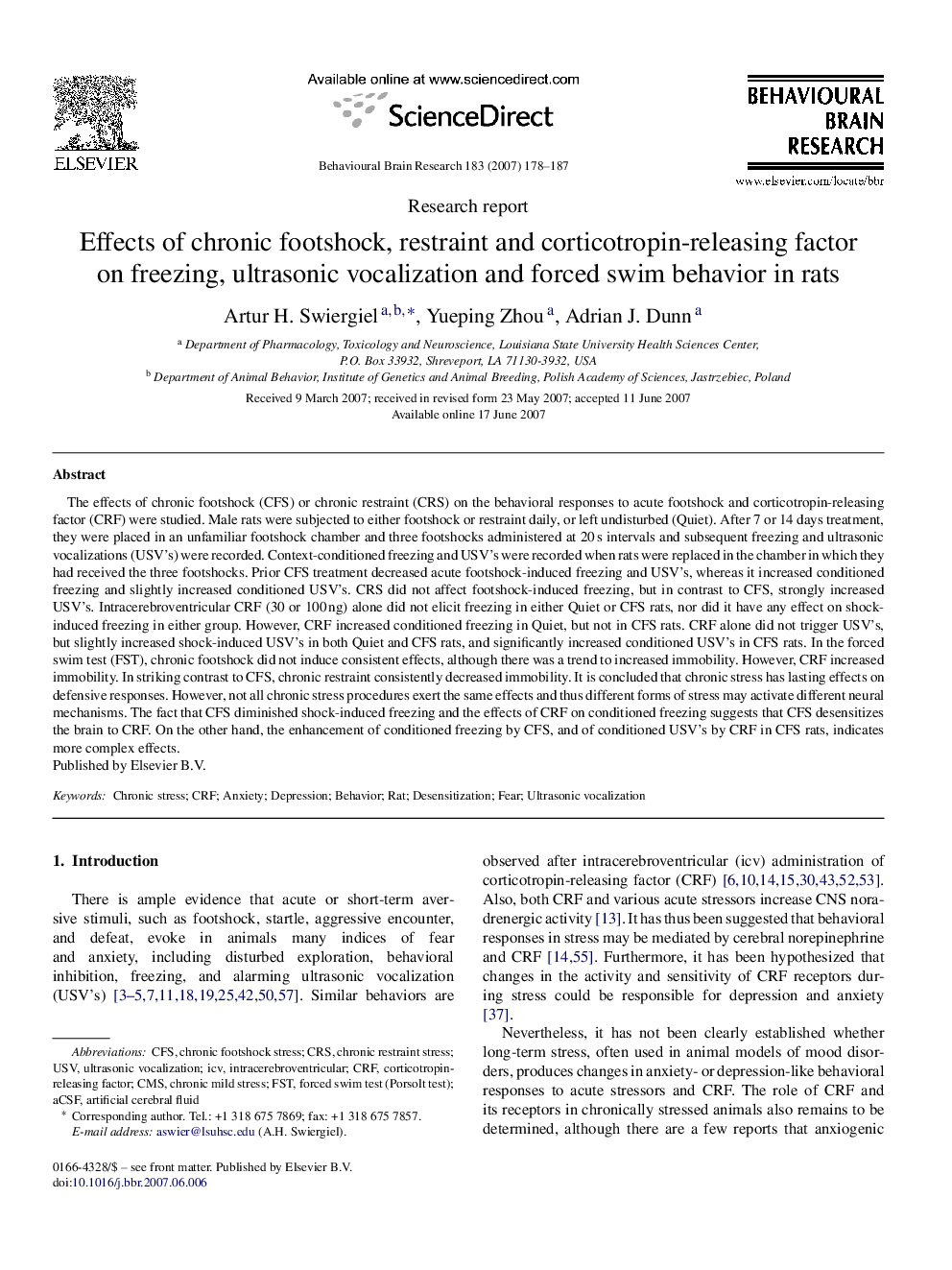| کد مقاله | کد نشریه | سال انتشار | مقاله انگلیسی | نسخه تمام متن |
|---|---|---|---|---|
| 4315308 | 1290072 | 2007 | 10 صفحه PDF | دانلود رایگان |

The effects of chronic footshock (CFS) or chronic restraint (CRS) on the behavioral responses to acute footshock and corticotropin-releasing factor (CRF) were studied. Male rats were subjected to either footshock or restraint daily, or left undisturbed (Quiet). After 7 or 14 days treatment, they were placed in an unfamiliar footshock chamber and three footshocks administered at 20 s intervals and subsequent freezing and ultrasonic vocalizations (USV's) were recorded. Context-conditioned freezing and USV's were recorded when rats were replaced in the chamber in which they had received the three footshocks. Prior CFS treatment decreased acute footshock-induced freezing and USV's, whereas it increased conditioned freezing and slightly increased conditioned USV's. CRS did not affect footshock-induced freezing, but in contrast to CFS, strongly increased USV's. Intracerebroventricular CRF (30 or 100 ng) alone did not elicit freezing in either Quiet or CFS rats, nor did it have any effect on shock-induced freezing in either group. However, CRF increased conditioned freezing in Quiet, but not in CFS rats. CRF alone did not trigger USV's, but slightly increased shock-induced USV's in both Quiet and CFS rats, and significantly increased conditioned USV's in CFS rats. In the forced swim test (FST), chronic footshock did not induce consistent effects, although there was a trend to increased immobility. However, CRF increased immobility. In striking contrast to CFS, chronic restraint consistently decreased immobility. It is concluded that chronic stress has lasting effects on defensive responses. However, not all chronic stress procedures exert the same effects and thus different forms of stress may activate different neural mechanisms. The fact that CFS diminished shock-induced freezing and the effects of CRF on conditioned freezing suggests that CFS desensitizes the brain to CRF. On the other hand, the enhancement of conditioned freezing by CFS, and of conditioned USV's by CRF in CFS rats, indicates more complex effects.
Journal: Behavioural Brain Research - Volume 183, Issue 2, 2 November 2007, Pages 178–187